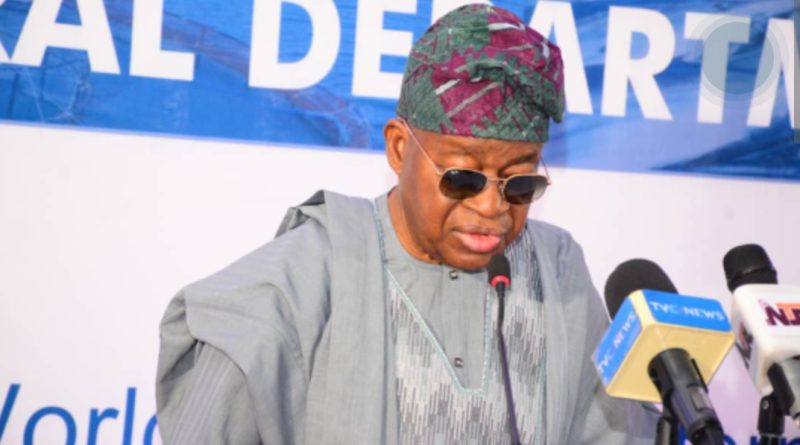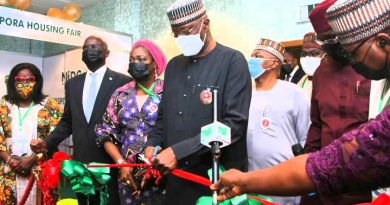FGN To Position Nigeria as Powerhouse for Aquaculture through Science Based Measures, Standards
Oru Leonard
The Federal Government of Nigeria said the present administration is committed to positioning Nigeria as a key player in the aquaculture and fisheries sector. This it assured can be realised through meticulous implementation of science-based management measures in the sector as well as implementation of best practices within aquacultural and fishery operations in the country.
The Minister of Marine and Blue Economy, Adegboyega Oyetola who made this known at the the Day 1 session of the validation of the National Fishery and Aquaculture Policy for Nigeria holding in Abuja stated that the policy embodies a bold and ambitious vision for the future of our marine resources.
Speaking on the management measures and executable best practices, the Minister said ” the Federal Ministry of Marine and Blue Economy remains steadfast in its commitment to implementing science-based fisheries management measures that ensures the long term health and productivity of fish stocks in Nigerian waters, as well as ensuring best practices in aquacultural operations. This commitment includes enforcing catch limits, encouraging, promoting and enforcing seasonal fishing, protecting critical habitats, and taking decisive action against illegal, unreported, and unregulated (IUU) fishing activities.”
Speaking further, “The policy is designed to promote sustainable fisheries management, enhance productivity and profitability within the sector, and improve the livelihood of fisherfolks and aquaculture farmers.”
“We can secure a brighter and more prosperous future for our fisheries and aquaculture industries.” He added.
The Minister stressed that the policy document emphasizes enhancing the productivity and profitability of the aquaculture industry through strategic investments in technology, infrastructure, and capacity building, thereby positioning Nigeria as a key player in aquaculture production by advocating for the adoption of morden practices, improving access to financing and markets for aquaculture farmers.
He maintained that to achieve the set objectives the institutional framework responsible for implementation of this policy combined with adequate funding and controlled resource allocation to relevant government agencies, as well as coordinating and collaborating with different Stakeholders, including states and local governments is critical to realizing the potentials that abound in the Marine and blue economy sub-sector.
On his part, the Director, Fisheries and Aquaculture Department in the Ministry, Wellington Omoragbon said the review of the document for validation became necessary following the transfer of the Department of Fisheries and Aquaculture to Marine and Blue Economy.
He noted that the proposed document is not a solitary effort by the fishery and aquaculture department under the new ministry in collaboration with the Worldfish Center and the International Food Policy Research Institute (IFPRI).
He affirmed that the policy aims to create a sustainable, inclusive, and resilient fisheries and aquaculture sector that is capable of meeting the needs of the expanding population while further safeguarding the aquatic ecosystem for future generations.
The 2-Day National Fishery and Aquaculture Policy Validation Workshop ongoing in Abuja has convened relevant stakeholders and consultants to validate the advanced policy for the fishery and aquaculture sub-sector within the broader marine and blue economy sector.
(FMMBE Press)




